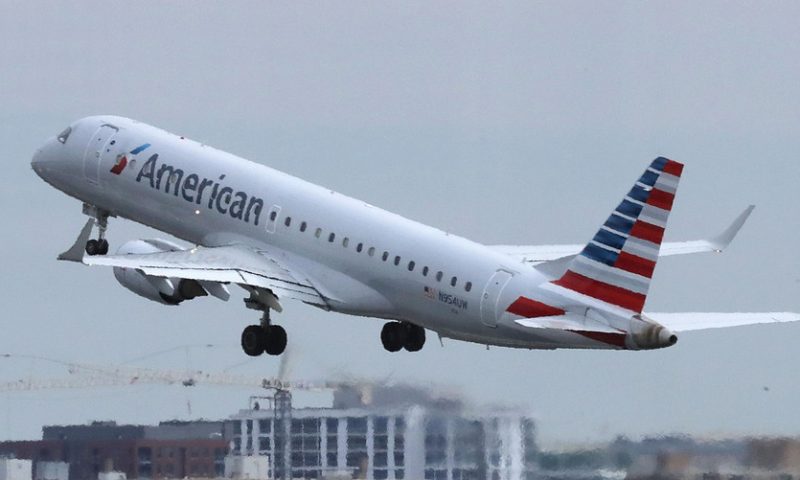Selloff in American shares snaps 9-session win streak, longest in 5 years
Shares of airline companies suffered a broad beating Monday, led lower by American Airlines Group Inc.’s stock, as soaring crude-oil prices stoked fears that rising fuel costs would act as a drag on earnings.
The NYSE Arca Airline Index XAL, -2.91% slumped 3.0% in afternoon trade, while the Dow Jones Transportation Average DJT, -0.77% shed 0.7%, with all six air carrier components losing ground. That underperformed the S&P 500 index’s SPX, -0.31% 0.3% decline.
American Airlines’ stock AAL, -7.28% tumbled 6.5% in active trading to pace its peer group, putting it on track for the first decline in 10 sessions. The nine-session win streak through Friday was the longest such stretch since the 10-day streak ending June 4, 2014.
Trading volume swelled to 10.3 million shares, compared with the full-day average of about 7.5 million shares.
Meanwhile, October crude-oil futures CLV19, -0.92% shot up 14%, putting them on course for the biggest one-day gain since January 2019, after an attack on major crude facilities in Saudi Arabia over the weekend.
“The airlines will not be able to quickly absorb the spike in oil prices,” wrote analyst Helane Becker at Cowen, in a note to clients. “American will likely be most affected as they are the largest consumer of jet fuel in the world.”
Among other Dow transports components, shares of United Airlines Holdings Inc. UAL, -2.84% shed 2.9%, JetBlue Airways Corp. JBLU, -3.05% slid 2.8%, Delta Air Lines Inc DAL, -1.57% lost 1.9%, Southwest Airlines Co. LUV, +0.04% slipped 0.1% and Alaska Air Group Inc. ALK, -1.84% fell 1.5%.
Elsewhere, shares of Hawaiian Airlines parent Hawaiian Holdings Inc. HA, -1.06% gave up 1.2% and Spirit Airlines Inc. SAVE, -0.98% declined 1.0%.
Becker said airlines have moved away from hedging oil over the past few years, as they now prefer to price their products to reflect current conditions, which helps improve margins. And of the airlines that still hedge, they prefer to use options that allows them to benefit from declining fuel prices but limits the benefit when fuel spikes, Becker wrote.
Among the companies that continue to hedge jet fuel prices are Delta, Southwest, Alaska and Hawaiian, she said.
Becker said airfares tend to track oil prices with a two-to-six month lag.
“If the recent spike in oil prices were to be sustained or if oil continued to move higher from here, airlines will look to aggressively raise fares,” Becker wrote. “If the airlines are unable to raise prices to offset rising jet fuel costs, they will likely adjust capacity lower by eliminating some frequencies or remove underperforming routes.”
If prices remain near current levels, Becker expects only a “modest” impact to third-quarter results, given that the price spike occurred late in the quarter, but the impact will be “more material” to fourth-quarter results and beyond.
The NYSE Arca Airline Index, which is headed for the first lost in nine sessions, has now gained 8.8% year to date, while the Dow transports has rallied 17% and the Dow Jones Industrial Average DJIA, -0.52% has advanced 16%.

